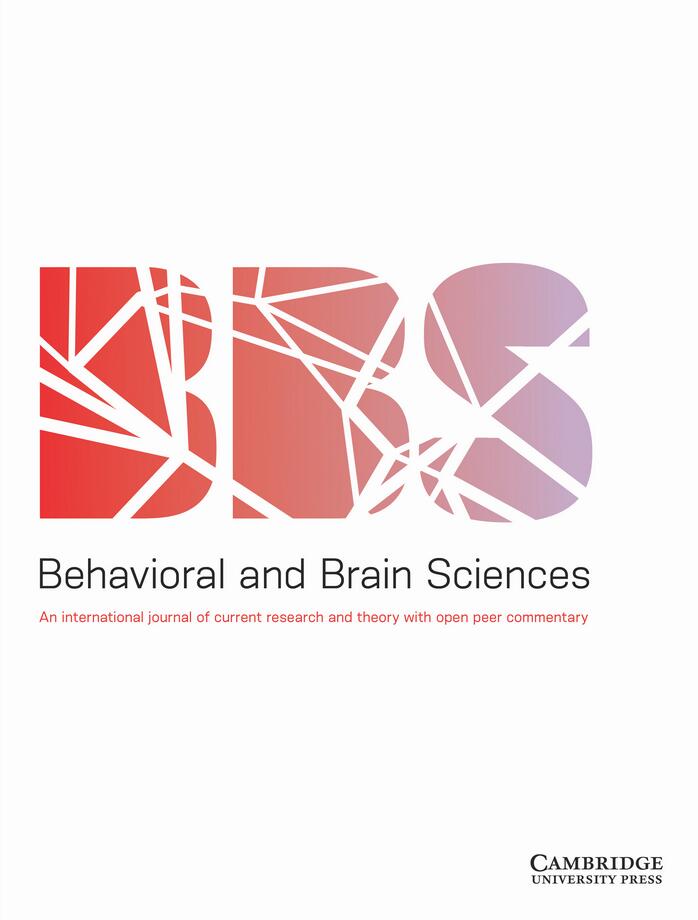所有权是延伸自我的组成部分。
IF 16.6
1区 心理学
Q1 BEHAVIORAL SCIENCES
引用次数: 0
摘要
正如目标文章所解释的那样,资源所有权可以通过不断演变的竞争和合作机制来确立。然而,所有权的一个方面没有被计算模型捕捉到,这对身份认同很重要,即所有权物品作为“扩展自我”假设的组成部分的作用。本文章由计算机程序翻译,如有差异,请以英文原文为准。
Ownership as a component of the extended self.
Ownership of resources can be established by evolved competitive and cooperative mechanisms as explained by the target article. However, there is one aspect of ownership that is not captured by computational models which is important to identity, namely the role of owned items as components of "the extended self" hypothesis.
求助全文
通过发布文献求助,成功后即可免费获取论文全文。
去求助
来源期刊

Behavioral and Brain Sciences
医学-行为科学
CiteScore
1.40
自引率
1.70%
发文量
353
期刊介绍:
Behavioral and Brain Sciences (BBS) is a highly respected journal that employs an innovative approach called Open Peer Commentary. This format allows for the publication of noteworthy and contentious research from various fields including psychology, neuroscience, behavioral biology, and cognitive science. Each article is accompanied by 20-40 commentaries from experts across these disciplines, as well as a response from the author themselves. This unique setup creates a captivating forum for the exchange of ideas, critical analysis, and the integration of research within the behavioral and brain sciences, spanning topics from molecular neurobiology and artificial intelligence to the philosophy of the mind.
 求助内容:
求助内容: 应助结果提醒方式:
应助结果提醒方式:


